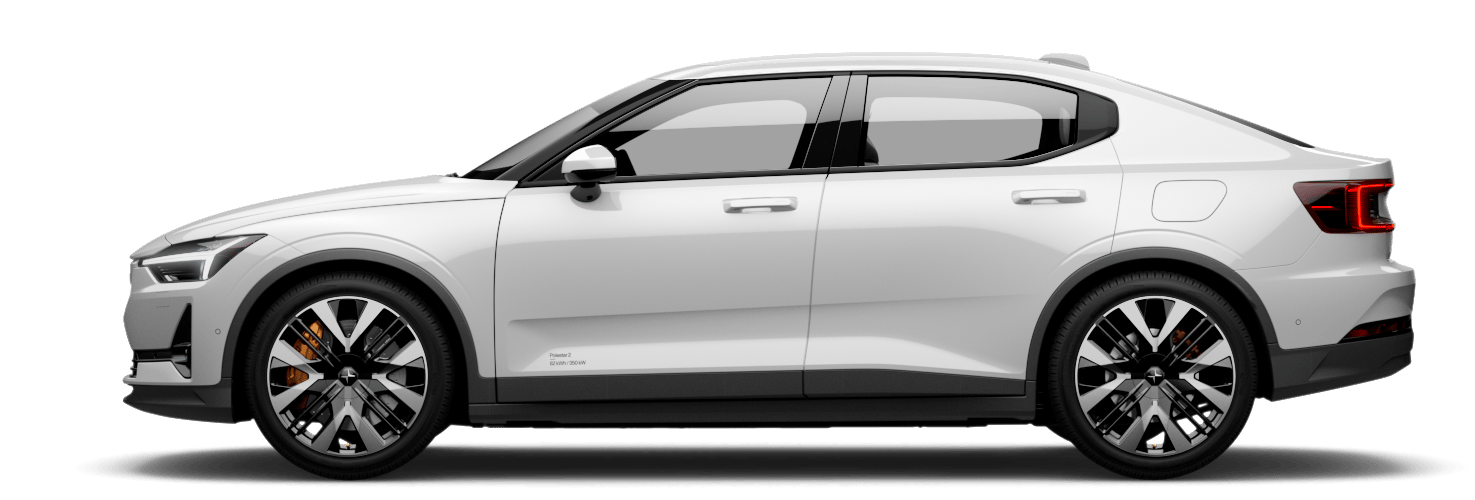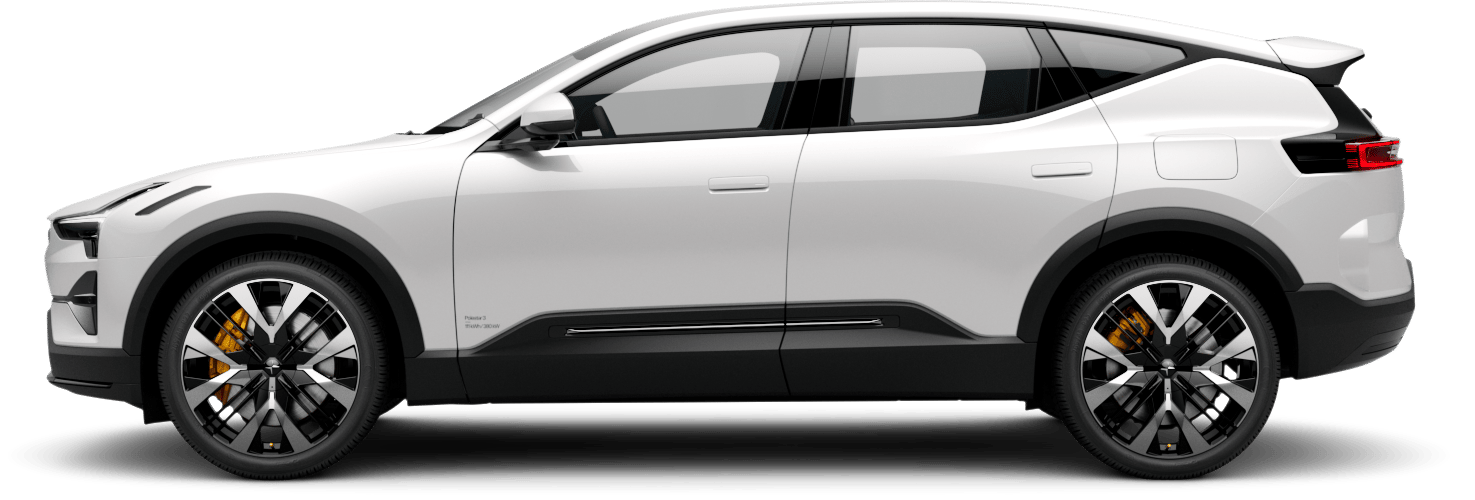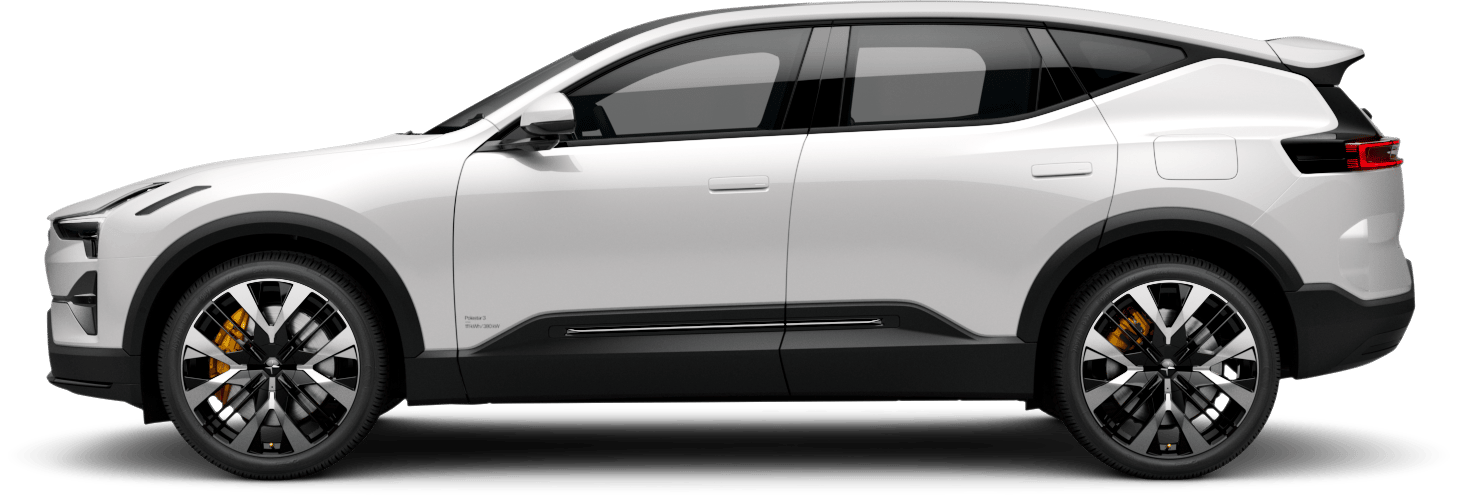Peak performance: Fine-tune your day with Polestar Breathe
A car is more than just a means of transport. It's a place where life happens. From road trips to school runs, memories are made between those four wheels. Sometimes (if time is on our side), it can even be a place for rest and relaxation. A new wave of technology offers moments of in-car serenity in a world that rarely seems to switch off. We look at Polestar app Breathe to find out how software is unlocking another dimension of your car.
If you own a car, the chances are you're spending a considerable amount of time in it (we're talking years, not months). That's quite the journey. It's why many automotive manufacturers have ergonomics teams to make sure your seating positions are comfortable, relaxing, and safe. It's why interior designers painstakingly scour the market for the perfect materials to sit on. And why high-end infotainment, lighting, and audio systems are embedded into fixtures.
This minute attention to detail is what makes your Polestar a "Polestar". But it also means your car is probably one of the most relaxing environments you'll find yourself in today.
"Did you know that a lot of people stay in the car before they go inside after they've been at work?" Anya Ernst, Principal Engineer Services at Polestar, says when describing some of the motivations for her team's latest application. Although there are no statistics on the number of people who spend a few moments collecting their thoughts before leaving the car, social media platforms are awash with posts from these real-life, mobile decompression chambers. "It's almost like a safe room. The seating. The sound. The hardware. It all comes together to create this perfect environment."

It all comes together to create this perfect environment
Inspired by this ergonomic nirvana, Anya and her team decided to build a tool to maximise the in-car experience. "People talk a lot about wellness and mindfulness, but to be honest, it's much broader than that. It's about providing people with the tools to meet their particular needs. If people want to spend a few minutes meditating after a stressful day, then that's great. But it's also for people who want to pause and collect their thoughts before that big meeting, interview, or whatever. In that way, it's very much about improving your performance."
Anya is, of course, talking about the Breathe app. A simple, almost hypnotic animation of sweeping orange and black circles that combines minimalist visuals with calming therapeutic sounds, the app has become a popular download for Polestar drivers. "It's basically a guided breathing tool that's focused on grounding the user. So, before going to work or heading home to the chaos, you can take a moment to relax," explains Johanna Øien, a UX Designer within the Innovation team.
The concept of using your car for well-being is far from new. Harvard Business Review recommends using your daily car commute as an opportunity to practice mindfulness, and countless other articles, blogs, and guides advocate meditation, reflection, or just some good old-fashioned peace and quiet in your car.
But is the Polestar experience any different?


Sound of silence
Whether it's the immersive in-car audio through Harman Kardon's Polestar 2 sound system, the Dolby Atmos 360-degree spatial experience via 25 Bowers & Wilkins speakers in Polestar 3, or Polestar 4's 1,400 watts of audio power, you can rest assured your Polestar takes sound seriously. This is particularly useful for an app like Breathe. "Everyone knows that Polestar cars have really great speakers, and we use that to our advantage here. Sound is very important to the Breathe experience. The sound we use in this app was built by a composer who did tests in the cars and adapted the sounds specifically," says Anya.
Other, more obvious ways make Polestar the ideal environment for the app. EVs are silent, especially when stationary, providing the perfect sanctuary from the constant din of modern life. "To keep the entertainment active in a combustion car, you have to keep the engine running. If you're sitting in an EV, the climate and infotainment systems are still active, but you're sitting in silence — and not just silence but guilt-free silence, knowing that you're not contributing to increased emissions," explains Anya.
Anya and Johanna are quick to point out that the app was built by two developers from Polestar's internship programme. Gabriella Algervik and Felix Gunnarsson, both young designers from the Innovation team, took the lead in developing the app. "I am very fond of Breathe. Maybe I am biased because I'm part of it, but I really like the sound and the animation. It's simple and beautiful — but that also applies to almost every Polestar app," says Gabriella.








